CASP Registration Eligibility Checker
Check Your CASP Registration Eligibility
Answer these questions to determine if your business meets the SEC Philippines requirements for Crypto Asset Service Provider registration.
The SEC Philippines isn’t just watching the crypto market anymore-it’s actively shutting down unregistered platforms. Since July 5, 2025, any crypto exchange operating in the Philippines without official registration as a Crypto Asset Service Provider (CASP) is breaking the law. This isn’t a warning. It’s enforcement in motion.
Why the SEC Took Action
In 2022, the collapse of FTX sent shockwaves through global crypto markets. In the Philippines, hundreds of retail investors lost life savings overnight. Many of them had used offshore exchanges like Celsius and Binance, which had no legal obligation to protect Filipino users. The SEC saw the pattern: unregulated platforms, misleading yield promises, and zero accountability. By May 2025, they had their solution: a full regulatory framework that forces every crypto business serving Filipinos to play by local rules. The goal wasn’t to stop crypto. It was to stop scams. The SEC made it clear: you can trade Bitcoin, Ethereum, or any token you want. But if you’re running a platform that lets Filipinos buy, sell, or store crypto, you must register. No exceptions.What the CASP Rules Actually Require
To become a registered CASP, a company must meet strict, non-negotiable standards:- Be a Philippine-registered corporation-not just a local branch, not a shell company. 100% domestic incorporation is required.
- Hold a minimum of ₱100 million (about $1.8 million USD) in paid-up capital.
- Have a physical office in the Philippines with local staff.
- Keep customer funds completely separate from company funds-no commingling allowed.
- Store at least 95% of customer assets in cold storage.
- Use blockchain analytics tools to monitor transactions over ₱50,000 ($900 USD).
- Report financial data to the SEC monthly.
- Pass third-party cybersecurity audits meeting ISO 27001 standards.
- Offer platform uptime of 99.5% and process withdrawals within 72 hours.
- Never offer yield products over 20% APY without SEC approval.
Who Got Targeted-And What Happened
The SEC’s first big win came in 2024 with Binance. After months of warnings, the platform was forced to shut down its services in the Philippines. Users had 90 days to withdraw their funds. By the end of the transition, 78% of users successfully pulled out their money. But 12% reported delays, verification issues, and lost access-proof that even big platforms aren’t immune to chaos when they ignore the law. In August 2025, the SEC named ten more unregistered platforms: OKX, Bybit, KuCoin, Kraken, LBank, CoinW, and others. These exchanges were told to stop serving Filipino users immediately. The SEC didn’t just send a letter-they coordinated with internet providers to block access, asked Apple and Google to remove their apps from local app stores, and launched public advisories warning users not to deposit funds. The penalties for ignoring these rules are severe:- Fines of ₱50,000 to ₱10 million per violation ($900-$180,000 USD)
- Additional ₱10,000 ($180 USD) per day for ongoing violations
- Criminal charges: up to ₱2 million ($36,000 USD) in fines and 5 years in prison
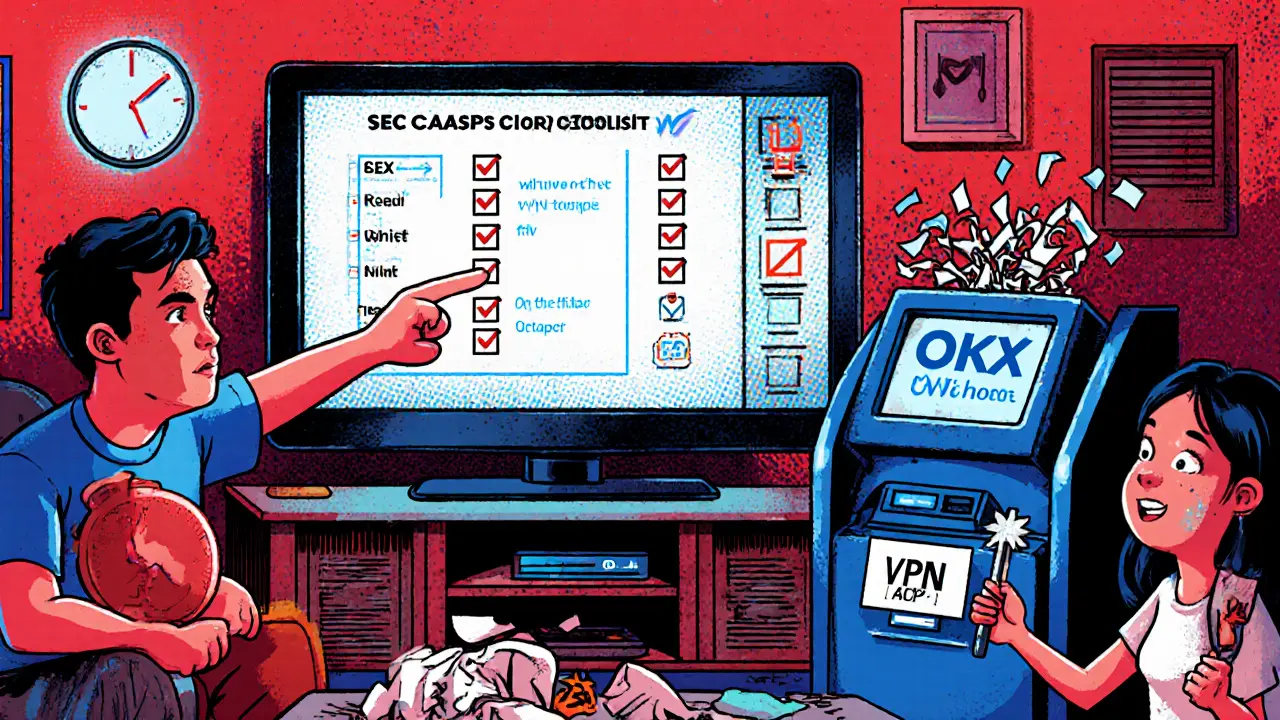
What This Means for Filipino Crypto Users
Before July 2025, an estimated 15 million Filipinos used crypto. About 85% of them-12.75 million people-were using unregistered platforms. That number is dropping fast. Many users are frustrated. Reddit threads like r/PhilippinesCrypto #2874 show heated debates. One user, CryptoPH2020, wrote: “I lost 150,000 PHP on Celsius in 2022-these rules might be strict but they’ll save others from the same fate.” That sentiment is common. People who got burned support the crackdown. But others are worried. With major exchanges gone, users are left with fewer choices. Some are turning to peer-to-peer (P2P) platforms or using VPNs to access blocked sites. The Cybersecurity Bureau estimates 15-20% of crypto activity could shift to these riskier channels. The SEC admits this is a trade-off. Their focus isn’t on convenience-it’s on safety. The average Filipino crypto user isn’t a trader. They’re a remittance receiver. According to World Bank data, 68% of crypto transactions in the Philippines are for sending money home, averaging $287 per transfer. These users often don’t understand wallets or private keys. They trust apps that look like banking apps. The SEC is trying to protect them from fake platforms that disappear overnight.Is This Good for Local Businesses?
Yes-and that’s intentional. Before the CASP rules, local crypto startups struggled to compete. International exchanges offered lower fees, better UX, and no regulatory burden. Now, those same platforms can’t operate legally in the Philippines unless they meet the same standards as local firms. That levels the playing field. The SEC is also planning a Crypto-Asset Investor Compensation Fund by Q1 2026. It will be funded by registration fees from CASPs-0.05% of gross revenue-and is projected to collect ₱250 million ($4.5 million USD) annually. If a registered platform fails and users lose money, this fund could provide partial compensation. But the capital requirement is a hurdle. Only about 12 of the 240 crypto platforms currently operating in the Philippines meet all CASP requirements. Smaller exchanges may not survive. Industry analysts warn this could reduce competition and innovation.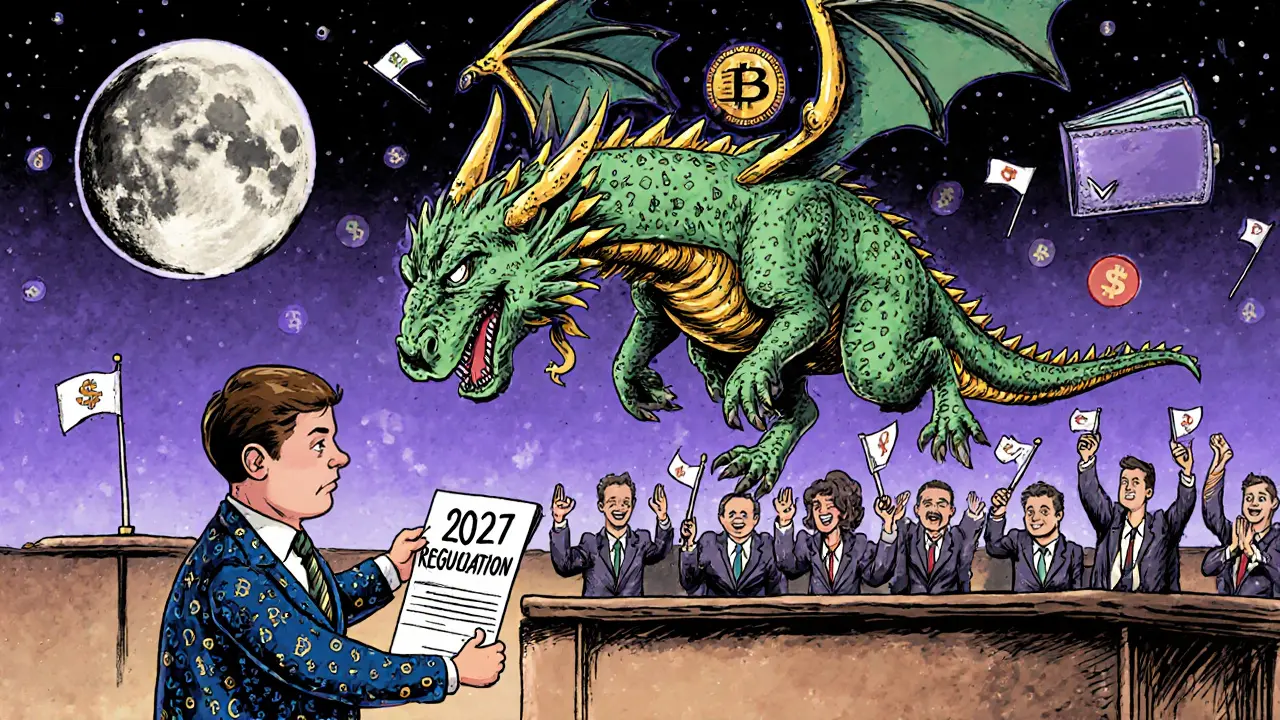
What’s Next?
The SEC isn’t done. In July 2025, Commissioner Maria Lourdes Limgenco told the Senate that DeFi protocols will be next. Smart contracts, yield farms, and liquidity pools aren’t regulated yet-but they will be by 2027. The SEC sees DeFi as the next frontier of risk for retail investors. The Philippines is becoming a model for other Southeast Asian countries. Indonesia and Malaysia have moved toward similar registration systems, but none require full domestic incorporation like the Philippines. Only China’s outright ban is stricter. Fitch Ratings predicts transaction volume will drop 35-40% in the short term. But long-term, the market will stabilize. Volatility will fall. Investor trust will rise. And the Philippines will have a crypto market that’s safer, even if it’s smaller.What Should You Do?
If you’re a Filipino crypto user:- Check if your exchange is on the SEC’s official CASP registry (link not included per instructions).
- If it’s not listed, withdraw your funds now. Don’t wait for a block.
- Never deposit money into a platform that doesn’t show its SEC registration number.
- Use only CASPs that offer cold storage, 2FA, and clear withdrawal timelines.
- Report unregistered platforms to the SEC’s hotline: +632-8981-7963.
- Start the CASP registration process immediately. The 90-120 day timeline won’t wait.
- Prepare your financial statements, business plan, and cybersecurity audit reports.
- Set up a local office. No shortcuts.
- Attend the SEC’s weekly virtual town halls every Wednesday at 10 AM PST.
Is crypto trading banned in the Philippines?
No, crypto trading is not banned. The SEC allows individuals to buy, sell, and hold cryptocurrencies. What’s banned is operating an unregistered platform that provides crypto services to Filipinos. You can trade on your own using personal wallets. But if you run a website, app, or exchange that lets others trade crypto, you must register as a CASP.
Can I still use Binance or Bybit in the Philippines?
No. Binance was blocked in 2024. Bybit, OKX, KuCoin, Kraken, and others were named in the SEC’s August 2025 enforcement list. Their apps have been removed from local app stores, and their websites are being blocked by internet providers. Using them now carries risk-your funds could be frozen or lost if the platform shuts down without warning.
What happens if I deposit money on an unregistered exchange?
If the exchange gets shut down, you have no legal recourse. Unlike registered CASPs, unregistered platforms aren’t required to keep customer funds separate or maintain insurance. If they disappear or get hacked, your money is gone. The SEC’s Investor Compensation Fund only covers losses from registered CASPs-not offshore platforms.
Are DeFi platforms regulated now?
Not yet. Decentralized finance (DeFi) protocols like Uniswap or Aave are not required to register under the current CASP rules. But the SEC has said they will be regulated by 2027. For now, using DeFi carries even higher risk because there’s no oversight, no accountability, and no way to recover funds if something goes wrong.
How long does CASP registration take?
The SEC says it takes 30 business days to process a complete application. But early applicants report actual processing times of 45 days or more. The full registration process-including setting up a local office, securing capital, and passing audits-can take 90 to 120 days. Start early. Incomplete applications are returned without notice.
Can I start a crypto business in the Philippines now?
Yes, but only if you can meet all CASP requirements. You need to be a Philippine corporation with ₱100 million in capital, a physical office, cybersecurity certifications, and compliance systems. It’s expensive and complex. But if you can do it, you’ll be one of the few legal players in a market that’s about to become much more stable-and potentially more profitable.
Will the SEC block VPNs to stop access to banned exchanges?
The SEC hasn’t targeted VPNs directly. Blocking VPNs would be technically difficult and legally complex. Instead, they’re focusing on the platforms themselves-removing apps, blocking domains, and pressuring payment processors. But if users turn to unregulated P2P or offshore channels, the SEC may revisit this in future phases.
How many people are affected by these enforcement actions?
About 15 million Filipinos use crypto, and 85% of them (12.75 million) use unregistered platforms. The SEC expects a 30-40% drop in retail participation in the short term as users adjust to fewer options. But they believe the long-term benefit-fewer scams, more trust, and stronger local businesses-will outweigh the disruption.
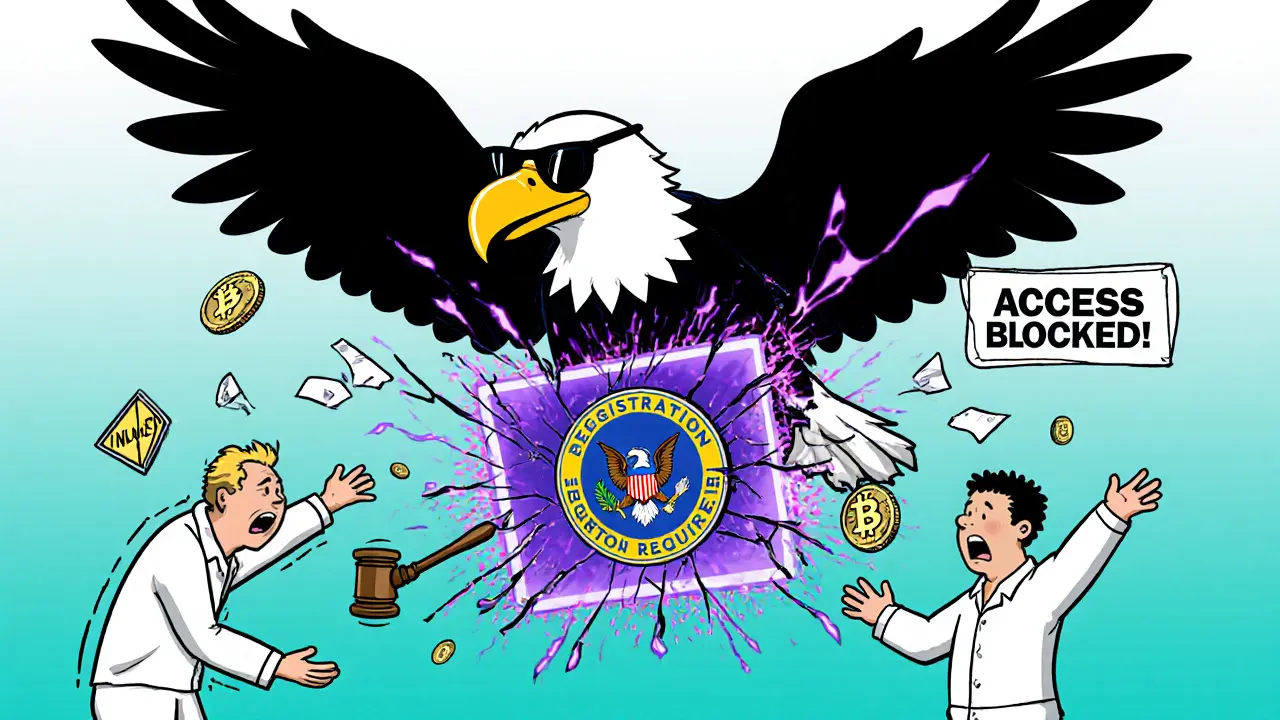
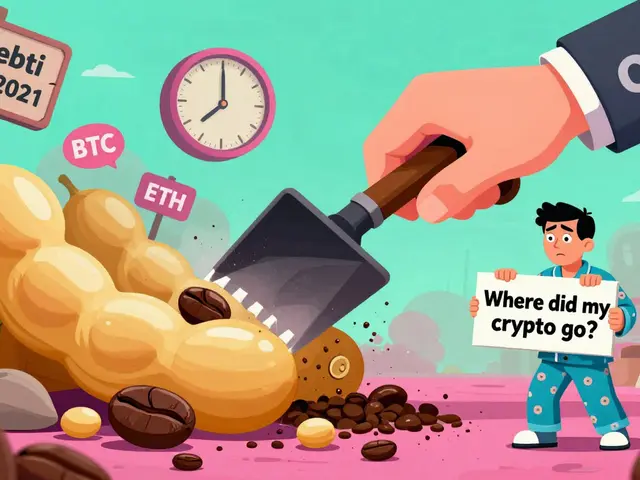
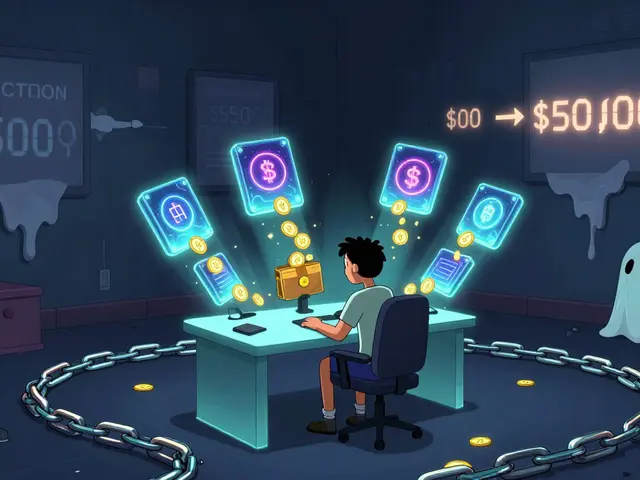
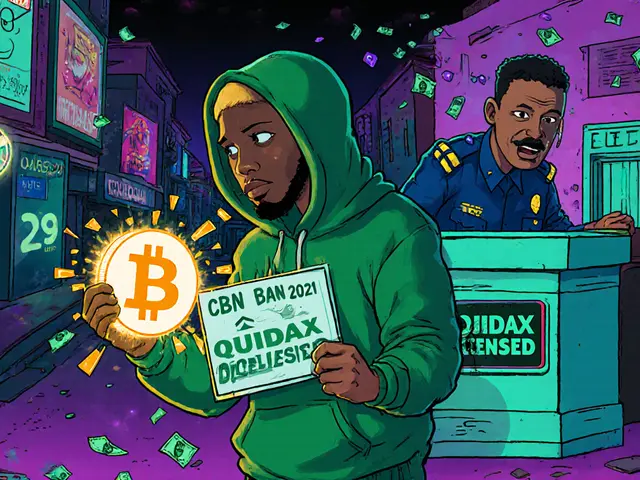

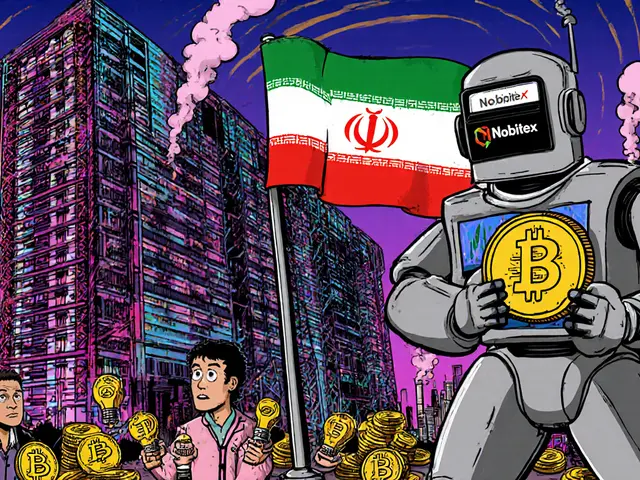
William Moylan
This is all just a front for the US to control global crypto. The SEC Philippines? More like the CIA’s puppet. They’re scared because crypto kills the dollar’s grip. They block Binance, then wonder why people use P2P? Wake up, sheeple. Your money’s safer in a cold wallet than in their ‘regulated’ banks. 🤡